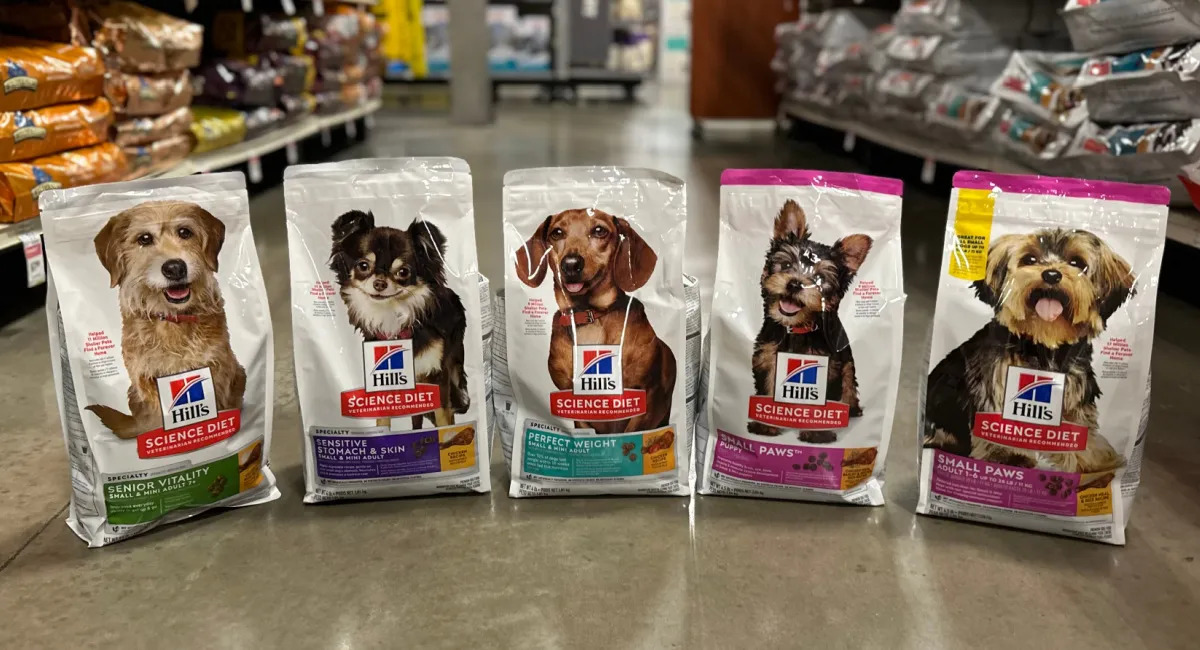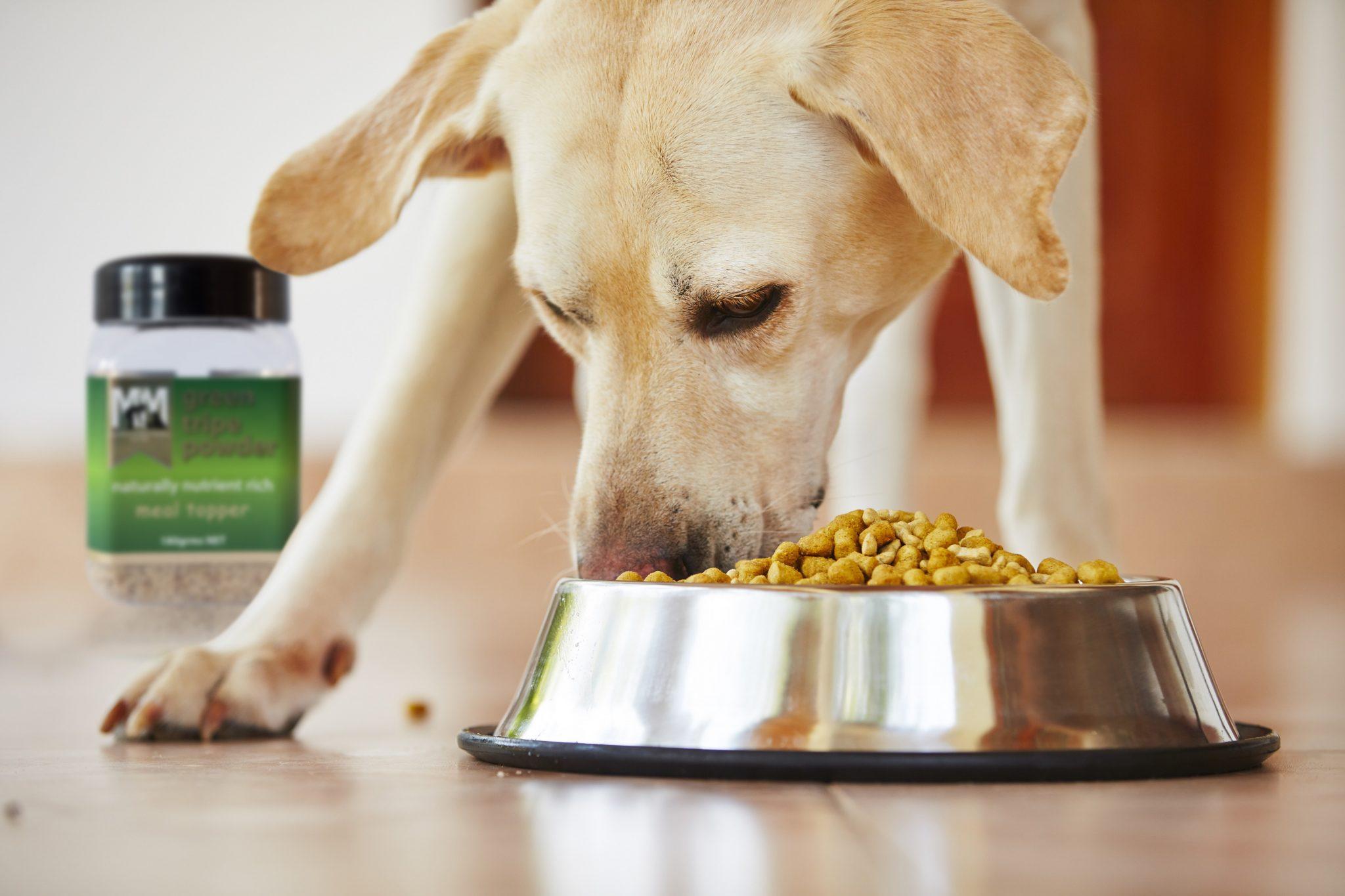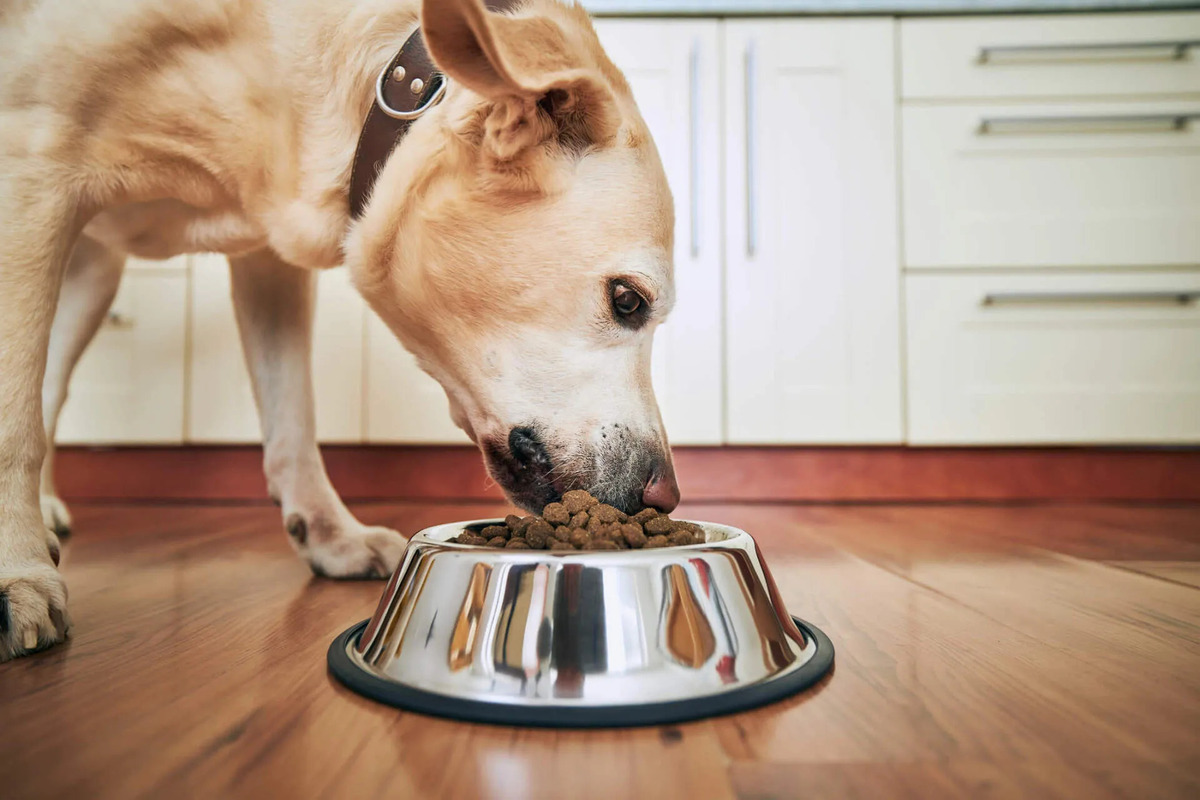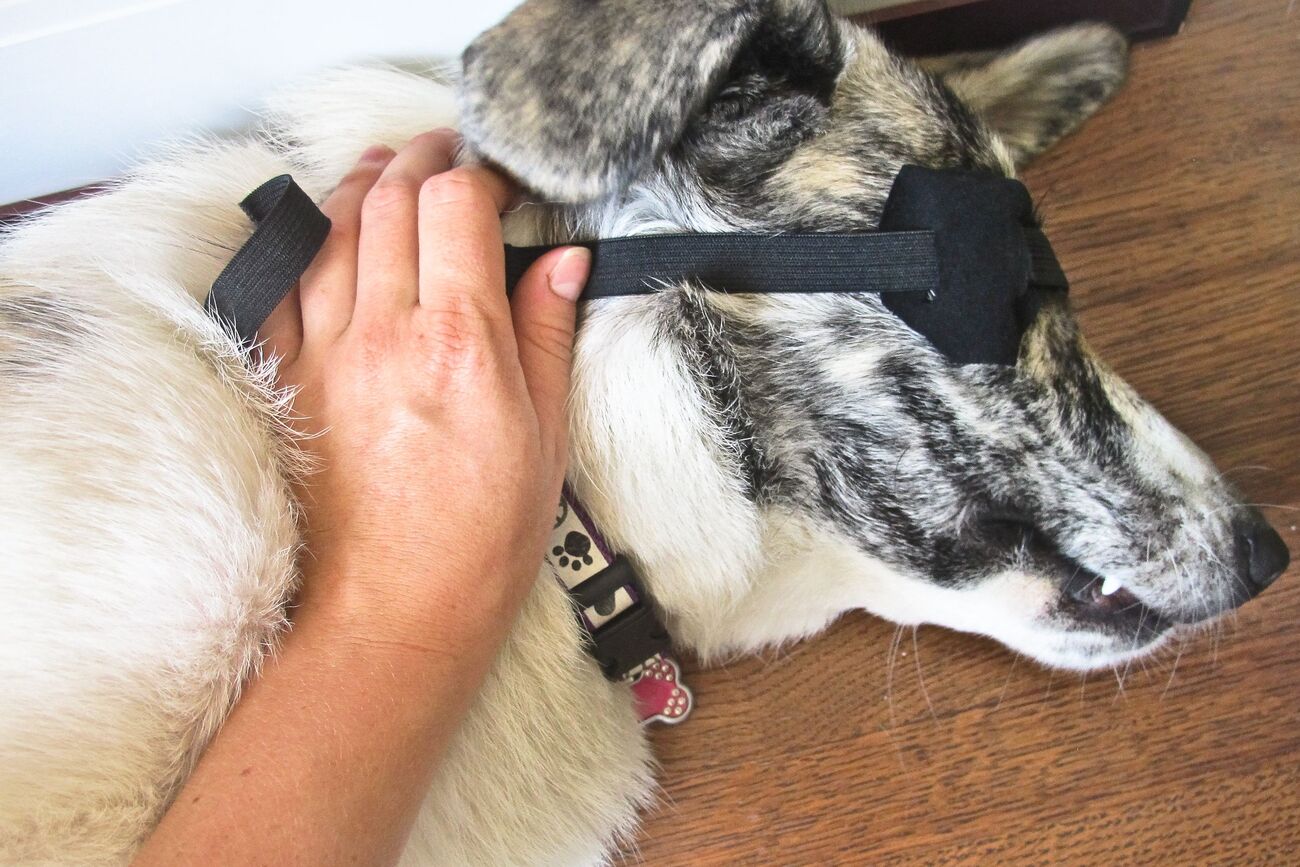Home>Health & Wellness>Common Health Issues>How To Make Healthy Dog Food For Allergies
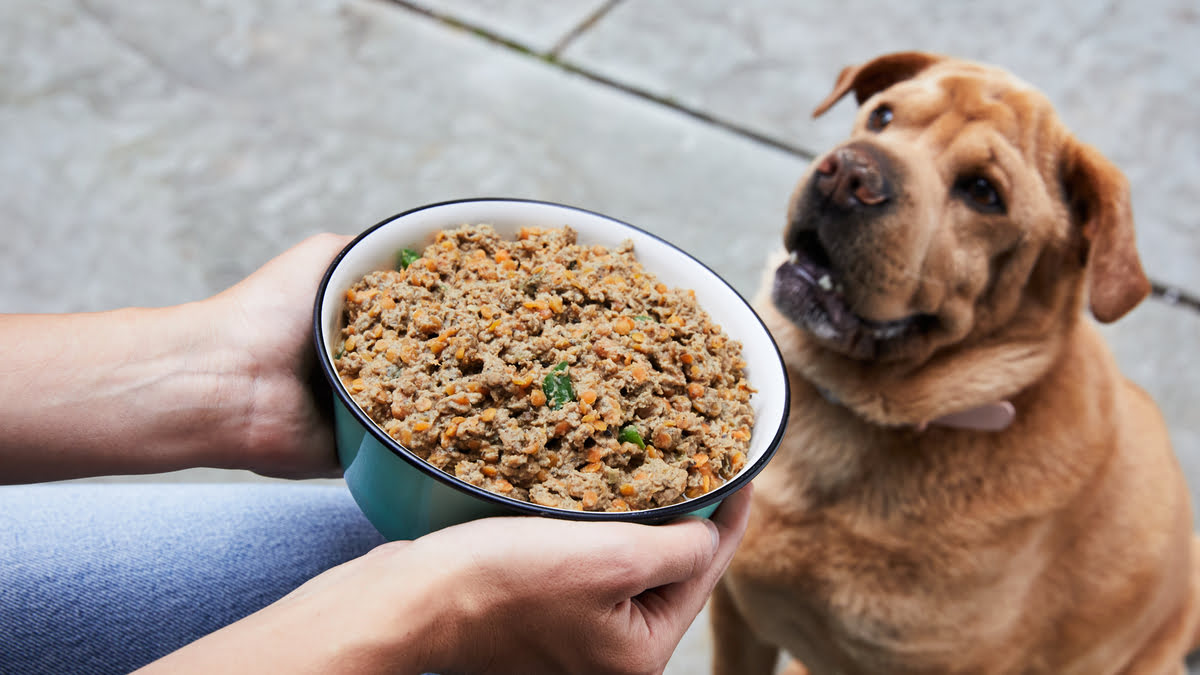

Common Health Issues
How To Make Healthy Dog Food For Allergies
Modified: February 21, 2024
Learn how to make healthy dog food for allergies and address common health issues with our expert tips and recipes. Keep your furry friend happy and healthy!
(Many of the links in this article redirect to a specific reviewed product. Your purchase of these products through affiliate links helps to generate commission for Pawsomeoldies.com, at no extra cost. Learn more)
Table of Contents
Introduction
When it comes to our furry companions, their health and well-being are of utmost importance. Just like humans, dogs can also suffer from allergies, which can be a source of discomfort and distress for them. One common approach to managing dog allergies is through dietary adjustments, particularly by providing homemade food tailored to their specific needs.
In this comprehensive guide, we will delve into the world of dog allergies and explore the benefits of preparing homemade food for dogs with allergies. We will also provide valuable insights into common allergens found in commercial dog food and offer practical tips and recipes for creating balanced and nutritious meals that cater to your dog's unique dietary requirements.
By the end of this article, you will have a deeper understanding of dog allergies and the tools to craft wholesome and allergy-friendly meals for your beloved canine companion. Let's embark on this journey to ensure that our furry friends can enjoy a happy and healthy life free from the discomfort of allergies.
Read more: How To Make Food For A Diabetic Dog
Understanding Dog Allergies
Dog allergies are a common health concern that can manifest in various ways, impacting the overall well-being of our furry friends. Just like humans, dogs can develop allergic reactions to certain substances, leading to a range of symptoms that can affect their skin, digestion, and overall comfort. It's essential for dog owners to recognize the signs of allergies and understand the underlying causes to provide appropriate care and support for their pets.
Allergies in dogs can be broadly categorized into three main types: flea allergy dermatitis, atopic dermatitis, and food allergies. While flea allergy dermatitis is triggered by the saliva of fleas and atopic dermatitis is related to environmental allergens such as pollen and dust mites, food allergies specifically stem from the consumption of certain ingredients in their diet.
The symptoms of food allergies in dogs can vary, but commonly include itching, skin irritation, hair loss, ear infections, and gastrointestinal issues such as vomiting and diarrhea. These symptoms can significantly impact a dog's quality of life, leading to discomfort and distress if left unaddressed.
Identifying food allergies in dogs can be a complex process, often requiring careful observation and elimination diets to pinpoint the specific allergens. Common food allergens for dogs include proteins such as beef, chicken, and dairy, as well as grains like wheat and corn. It's important to note that food intolerances, which are different from allergies, can also contribute to similar symptoms in dogs.
Understanding the nuances of dog allergies empowers pet owners to make informed decisions regarding their dog's diet and overall health. By recognizing the signs of allergies and being aware of potential triggers, dog owners can take proactive steps to alleviate their pet's discomfort and enhance their well-being.
In the following sections, we will delve deeper into the common allergens found in commercial dog food, explore the benefits of preparing homemade meals for dogs with allergies, and provide practical guidance on creating balanced and allergy-friendly diets for our canine companions. Let's embark on this journey to ensure that our furry friends can thrive and enjoy a life free from the burden of allergies.
Common Allergens in Dog Food
Identifying common allergens in commercial dog food is crucial for pet owners seeking to address their dog's allergies. Several ingredients commonly found in commercial dog food have the potential to trigger allergic reactions in dogs. By understanding these allergens, pet owners can make informed decisions when selecting or preparing food for their furry companions.
-
Proteins: Certain animal proteins, such as beef, chicken, and dairy products, are frequent culprits in triggering allergic reactions in dogs. These proteins are often used as primary ingredients in commercial dog food, making it essential for pet owners to scrutinize product labels and opt for alternative protein sources if their dog exhibits signs of protein allergies.
-
Grains: Grains, including wheat, corn, and soy, are commonly used as fillers in commercial dog food. While grains are a source of carbohydrates and nutrients, they can also provoke allergic responses in some dogs. Grain-free or limited-ingredient diets may be beneficial for dogs with grain allergies or sensitivities.
-
Artificial Additives: Artificial preservatives, colorings, and flavorings are prevalent in many commercial dog food products. These additives have the potential to exacerbate allergic reactions in dogs, leading to skin irritations, digestive issues, and overall discomfort. Opting for natural and minimally processed ingredients can help mitigate the risk of adverse reactions to artificial additives.
-
By-Products: Dog food containing by-products derived from various animal sources can be problematic for dogs with allergies. By-products may include organ meats, bones, and other animal parts that can trigger allergic responses in sensitive dogs. Choosing dog food that prioritizes whole and identifiable ingredients can reduce the likelihood of allergic reactions.
-
Fillers and Additives: Certain fillers and additives, such as carrageenan, a common thickening agent, and other synthetic ingredients, can contribute to allergic symptoms in dogs. Pet owners should carefully review ingredient lists and opt for dog food products that prioritize natural and easily digestible components.
By being mindful of these common allergens in commercial dog food, pet owners can take proactive steps to address their dog's allergies. Additionally, preparing homemade dog food allows for greater control over ingredient selection, enabling pet owners to tailor meals to their dog's specific dietary needs and sensitivities.
In the subsequent sections, we will explore the benefits of making homemade dog food for dogs with allergies and provide practical guidance on creating balanced and allergy-friendly diets to support the well-being of our canine companions. Let's continue our journey to ensure that our furry friends can thrive and enjoy a life free from the burden of allergies.
Benefits of Making Homemade Dog Food
Crafting homemade dog food tailored to address allergies offers a myriad of benefits for our canine companions. By preparing meals at home, pet owners gain greater control over the ingredients, allowing them to cater to their dog's specific dietary requirements and sensitivities. This personalized approach to meal preparation can significantly contribute to the overall well-being and health of dogs with allergies.
One of the primary advantages of making homemade dog food is the ability to eliminate potential allergens commonly found in commercial dog food. By carefully selecting and sourcing ingredients, pet owners can exclude known allergens such as certain proteins, grains, and artificial additives from their dog's diet. This proactive measure can help alleviate allergic reactions and reduce the discomfort experienced by dogs with food sensitivities.
Furthermore, homemade dog food enables pet owners to prioritize the use of high-quality, wholesome ingredients. By opting for fresh meats, vegetables, and grains, pet owners can provide their dogs with a nutrient-rich and balanced diet. This approach not only supports the nutritional needs of dogs but also minimizes the intake of processed and potentially harmful additives commonly found in commercial dog food.
In addition to addressing allergies, homemade dog food allows for customization based on individual dietary preferences and sensitivities. For instance, dogs with specific protein sensitivities can benefit from alternative protein sources such as turkey, fish, or lamb, which may be better tolerated. This level of customization empowers pet owners to tailor meals to their dog's unique needs, promoting digestive health and overall well-being.
Moreover, preparing homemade dog food fosters a deeper bond between pet owners and their dogs. The act of crafting meals with care and consideration demonstrates a commitment to the health and happiness of our furry companions. This hands-on approach to nourishment creates a sense of trust and reliability, strengthening the emotional connection between dogs and their owners.
By making homemade dog food, pet owners can also exercise greater transparency and accountability in their dog's diet. With full knowledge of the ingredients used, pet owners can ensure that their dogs are consuming wholesome and safe meals, free from potentially harmful additives or undisclosed components. This transparency contributes to the overall health and longevity of dogs, instilling confidence in the nutritional choices made on their behalf.
In essence, the benefits of making homemade dog food for dogs with allergies extend beyond addressing specific dietary concerns. This approach promotes overall health, fosters a deeper bond between pet owners and their dogs, and empowers pet owners to make informed and conscientious choices regarding their dog's nutrition. As we continue our journey to support the well-being of our furry friends, let's explore practical guidance on creating balanced and allergy-friendly diets to ensure that our canine companions can thrive and enjoy a life free from the burden of allergies.
Creating a Balanced Diet for Dogs with Allergies
Crafting a balanced diet for dogs with allergies is a fundamental aspect of supporting their overall health and well-being. When addressing canine allergies through dietary adjustments, it is essential to ensure that the meals provided are not only tailored to alleviate allergic reactions but also meet the dog's nutritional requirements. By incorporating a variety of nutrient-rich ingredients and considering the specific dietary sensitivities of the dog, pet owners can create meals that promote optimal health and vitality.
Essential Nutrients
A balanced diet for dogs with allergies should encompass essential nutrients vital for their growth, energy, and immune function. This includes high-quality proteins, healthy fats, carbohydrates, vitamins, and minerals. Proteins derived from alternative sources such as turkey, fish, or lamb can serve as valuable substitutes for common allergens like beef or chicken. Additionally, incorporating healthy fats from sources like salmon or flaxseed oil can contribute to skin and coat health, which is particularly beneficial for dogs with allergy-related skin issues.
Allergy-Friendly Carbohydrates
When selecting carbohydrates for dogs with allergies, opting for allergy-friendly options such as sweet potatoes, peas, or quinoa can provide essential energy while minimizing the risk of triggering allergic reactions. These alternatives offer a rich source of complex carbohydrates and fiber, supporting digestive health and providing sustained energy levels for active dogs.
Nutrient-Dense Vegetables
Including a variety of nutrient-dense vegetables in the dog's diet can enhance the overall nutritional profile of their meals. Vegetables such as spinach, carrots, and broccoli offer an array of vitamins, minerals, and antioxidants that contribute to immune support and overall well-being. Moreover, these vegetables can be beneficial for dogs with allergies, as they are less likely to provoke allergic responses compared to certain grains or artificial additives.
Balanced Meal Planning
Creating a balanced diet for dogs with allergies involves thoughtful meal planning to ensure that all essential nutrients are adequately provided. Pet owners should consider consulting with a veterinarian or a canine nutrition specialist to develop meal plans that cater to the specific dietary needs and sensitivities of their dogs. By incorporating a diverse range of allergy-friendly ingredients and rotating protein sources, pet owners can mitigate the risk of developing new allergies while promoting a well-rounded and satisfying diet for their furry companions.
Read more: How To Test Your Dog For Food Allergies
Transitioning to Homemade Meals
When transitioning a dog to a homemade allergy-friendly diet, it is important to do so gradually to allow for a smooth adjustment. Gradually introducing the new meals while monitoring the dog's response can help identify any potential sensitivities and ensure a seamless transition. Additionally, maintaining consistency in meal preparation and ingredient selection is key to supporting the dog's digestive health and overall well-being.
By focusing on nutrient-rich ingredients, allergy-friendly alternatives, and balanced meal planning, pet owners can create wholesome and allergy-friendly diets that cater to the specific needs of their dogs. This proactive approach not only addresses allergies but also promotes overall health and vitality, allowing dogs to thrive and enjoy a life free from the burden of allergic reactions.
Recipes for Homemade Dog Food for Allergies
Crafting homemade dog food tailored to address allergies offers a myriad of benefits for our canine companions. By preparing meals at home, pet owners gain greater control over the ingredients, allowing them to cater to their dog's specific dietary requirements and sensitivities. This personalized approach to meal preparation can significantly contribute to the overall well-being and health of dogs with allergies.
Turkey and Sweet Potato Stew
Ingredients:
- 1 pound ground turkey
- 2 cups diced sweet potatoes
- 1 cup peas
- 1 tablespoon olive oil
- 4 cups low-sodium chicken broth
- 1 teaspoon dried rosemary
Instructions:
- In a large pot, heat the olive oil over medium heat.
- Add the ground turkey and cook until browned, breaking it into small pieces with a spoon.
- Stir in the diced sweet potatoes, peas, and dried rosemary.
- Pour in the chicken broth and bring the mixture to a boil.
- Reduce the heat and let the stew simmer for 15-20 minutes, or until the sweet potatoes are tender.
- Allow the stew to cool before serving it to your dog.
Salmon and Quinoa Delight
Ingredients:
- 1 cup cooked quinoa
- 1 can of wild-caught salmon, drained
- 1 cup steamed broccoli, chopped
- 2 tablespoons coconut oil
- 1 teaspoon turmeric
- 1 tablespoon chopped fresh parsley
Instructions:
- In a mixing bowl, combine the cooked quinoa, wild-caught salmon, and steamed broccoli.
- Add the coconut oil, turmeric, and chopped parsley to the mixture and stir until well combined.
- Serve the salmon and quinoa delight to your dog, adjusting the portion size based on their dietary needs.
Lamb and Vegetable Medley
Ingredients:
- 1 pound ground lamb
- 1 cup diced carrots
- 1 cup green beans, trimmed and chopped
- 1 cup cooked brown rice
- 1 tablespoon flaxseed oil
- 2 cups water
Instructions:
- In a skillet, brown the ground lamb over medium heat, breaking it into small pieces as it cooks.
- Add the diced carrots and chopped green beans to the skillet and sauté for a few minutes.
- Pour in the water and bring the mixture to a gentle boil.
- Stir in the cooked brown rice and flaxseed oil, then reduce the heat and let the medley simmer for 10-15 minutes.
- Allow the lamb and vegetable medley to cool before serving it to your dog.
These recipes provide a starting point for preparing homemade dog food tailored to address allergies. By incorporating alternative protein sources, allergy-friendly carbohydrates, and nutrient-dense vegetables, pet owners can create wholesome and allergy-friendly meals that cater to the specific dietary needs and sensitivities of their dogs. It's important to consult with a veterinarian or a canine nutrition specialist to ensure that the homemade meals align with the dog's nutritional requirements and support their overall health and well-being.
Conclusion
In conclusion, the journey to understanding and addressing dog allergies through dietary adjustments and homemade food preparation has provided valuable insights into the intricate world of canine health. By recognizing the signs of allergies, identifying common allergens in commercial dog food, and embracing the benefits of crafting homemade meals, pet owners can proactively support the well-being of their furry companions.
The exploration of common allergens in commercial dog food has shed light on the potential triggers for allergic reactions in dogs. By being mindful of ingredients such as proteins, grains, artificial additives, by-products, and fillers, pet owners can make informed choices when selecting or preparing food for their dogs. This awareness empowers pet owners to take proactive steps in addressing their dog's allergies and promoting a healthier diet tailored to their specific needs.
The benefits of making homemade dog food for dogs with allergies extend beyond addressing specific dietary concerns. This personalized approach fosters a deeper bond between pet owners and their dogs, promotes overall health, and empowers pet owners to make informed and conscientious choices regarding their dog's nutrition. By eliminating potential allergens, prioritizing high-quality ingredients, and customizing meals based on individual dietary sensitivities, pet owners can significantly contribute to the well-being and comfort of their furry companions.
Furthermore, the practical guidance on creating balanced and allergy-friendly diets for dogs with allergies emphasizes the importance of essential nutrients, allergy-friendly carbohydrates, nutrient-dense vegetables, and thoughtful meal planning. This approach enables pet owners to provide wholesome and allergy-friendly meals that cater to the specific needs of their dogs, promoting optimal health and vitality.
The provided recipes for homemade dog food tailored to address allergies serve as a starting point for pet owners to embark on the journey of crafting nutritious and allergy-friendly meals for their dogs. By incorporating alternative protein sources, allergy-friendly carbohydrates, and nutrient-dense vegetables, pet owners can create wholesome and satisfying meals that support their dog's overall health and well-being.
In essence, the journey to making healthy dog food for allergies is a testament to the dedication and care that pet owners invest in ensuring the best possible quality of life for their furry companions. By embracing the knowledge and practical insights shared in this guide, pet owners are equipped to navigate the complexities of dog allergies and provide their dogs with nourishing, allergy-friendly meals that contribute to a vibrant and joyful life, free from the burden of allergies.
